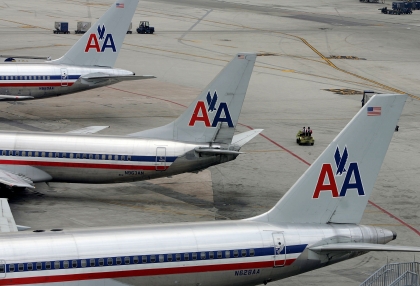 Fuel management company Allied Aviation LLC has filed a motion to dismiss a class action lawsuit stemming from a March 2011 fuel fire at the Miami International Airport in Florida, claiming that it should not be held liable for travelers’ economic damages.
Fuel management company Allied Aviation LLC has filed a motion to dismiss a class action lawsuit stemming from a March 2011 fuel fire at the Miami International Airport in Florida, claiming that it should not be held liable for travelers’ economic damages.
The class action lawsuit was initially filed by plaintiffs Randell Baisden and Mario Perez following a fire at the Miami International Airport fuel farm in March 2011, which they allege caused more than 100 American Airlines flights to be cancelled. The fire was allegedly caused by a mechanical failure at one of the fuel pumps. The cancelled flights led to thousands of passengers being stranded at the airport, many of whom incurred the costs of accommodations, meals and transportation.
Baisden says he was scheduled to fly from New Orleans to Miami, but his flight was cancelled allegedly as a result of the fire. Subsequently, he paid for an overnight stay at a New Orleans hotel and incurred charges for obtaining alternate airfare from a different airline. Perez also says his flight from New Orleans to Miami was scheduled due to the fire, and he incurred costs to book a flight from New Orleans to Orlando, Fla. as well as a rental car to drive from Orlando to Miami.
The charges in the class action lawsuit are based in negligence and strict liability. The plaintiffs argue that Allied have a “duty to maintain, manage and/or operate the fuel farm, which they contend is an ‘ultra-hazardous’ activity, and failed to properly do so.” The plaintiffs seek to recover consequential damages such as accommodations, meals and/or transportation.
Allied says that it does not have a duty to protect the plaintiffs from purely economic losses. In its motion to dismiss the class action lawsuit, Allied argues that the plaintiffs did not allege bodily harm or property damage as a result of the fuel fire and therefore Allied should not be liable for the economic harm they suffered.
In its motion to dismiss the class action lawsuit, Allied argues that operating a fuel farm does not constitute an “ultra-hazardous” activity, and that the plaintiffs failed to make a convincing argument that fuel farms involve a “high degree of risk.” Even if the court finds that fuel farms are “ultra-hazardous,” Allied claims that the hazards potentially associated with a fuel farm would involve the risk of physical harm from a fire or explosion, and would not reasonably involve economic harm to the putative Class Members.
Allied argues the plaintiffs’ alleged damages are “too remote in relation to the supposed duty owed to them.” Further, Allied claims that the plaintiffs failed to establish that Allied owed a duty to travelers booked on American Airlines flights. “While there may have been some foreseeable risk of physical injury to persons close to the fuel farm at the time of the accident, the economic injury Plaintiffs allege is far outside that reasonable zone of risk that poses a threat of harm to others,” the motion to dismiss the class action lawsuit says.
The plaintiffs are represented by Joseph J. Rinaldi Jr., Juan Manuel Garcia Jr. and David Wayne Brill of Brill Rinaldi Garcia.
The Allied Aviation Fuel Fire Class Action Lawsuit is Baisden, et al. v. Allied Aviation LLC, et al., Case No. 1:13-cv-23279, in the U.S. District Court for the Southern District of Florida.
UPDATE: A federal judge dismissed the Allied Aviation class action lawsuit on Feb. 6, 2014, after finding that Allied did not owe a duty of care to the plaintiffs for the economic damage caused by their additional travel costs and delays.
ATTORNEY ADVERTISING
Top Class Actions is a Proud Member of the American Bar Association
LEGAL INFORMATION IS NOT LEGAL ADVICE
Top Class Actions Legal Statement
©2008 – 2025 Top Class Actions® LLC
Various Trademarks held by their respective owners
This website is not intended for viewing or usage by European Union citizens.















One thought on Allied Aviation Wants Fuel Fire Class Action Lawsuit Dismissed
please add me